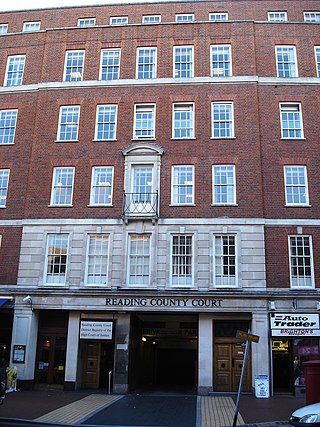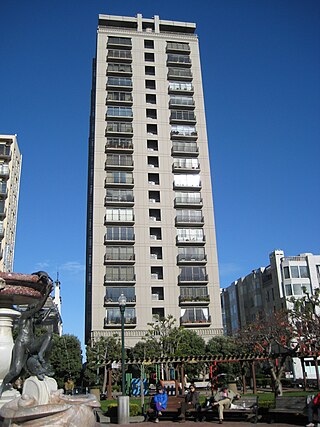External links
- Residential Tenancies Act 2006.
{{cite book}}:|website=ignored (help) - Tenant Protection Act 1997.
{{cite book}}:|website=ignored (help) - "Landlord and Tenant Board". ltb.gov.on.ca.
The Residential Tenancies Act, 2006 (RTA 2006) is the law in the province of Ontario, Canada, that governs landlord and tenant relations in residential rental accommodations. The Act received royal assent on June 22, 2006, and was proclaimed into law on January 31, 2007. The Act repealed and replaced the Tenant Protection Act, 1997. Ontario's Landlord and Tenant Board (LTB) is governed by the act.
The Residential Tenancies Act 2006 contains chapters on the meaning of a tenancy, the duties of landlords and tenants, "security of tenure" and the list of legitimate reasons that a landlord can evict a tenant, and a system of rent regulation.
Section 120 contains the key provision on rent regulation, which says that rents cannot increase by more than 2.5 per cent in a year.
Guideline increase
120. (1) No landlord may increase the rent charged to a tenant, or to an assignee under section 95, during the term of their tenancy by more than the guideline, except in accordance with section 126 or 127 or an agreement under section 121 or 123. 2006, c. 17, s. 120 (1).
Guideline (2) The Minister shall determine the guideline in effect for each calendar year as follows:
- 1. Subject to the limitation set out in paragraph 2, the guideline for a calendar year is the percentage change from year to year in the Consumer Price Index for Ontario for prices of goods and services as reported monthly by Statistics Canada, averaged over the 12-month period that ends at the end of May of the previous calendar year, rounded to the first decimal point.
- 2. The guideline for a calendar year shall be not more than 2.5 per cent. 2012, c. 6, s. 1.
Section 38 states a lease will automatically renew indefinitely. Section 39 requires an LTB order to remove a tenant who does not leave voluntarily. Together these sections effectively give tenants, if they pay their rent and do not violate other rules, lifetime tenancy.
{{cite book}}: |website= ignored (help){{cite book}}: |website= ignored (help)A leasehold estate is an ownership of a temporary right to hold land or property in which a lessee or a tenant has rights of real property by some form of title from a lessor or landlord. Although a tenant does hold rights to real property, a leasehold estate is typically considered personal property.
Property management is the operation, control, maintenance, and oversight of real estate and physical property. This can include residential, commercial, and land real estate. Management indicates the need for real estate to be cared for and monitored, with accountability for and attention to its useful life and condition. This is much akin to the role of management in any business.
Local Housing Allowance (LHA) was introduced by the government of the United Kingdom on 7 April 2008 to provide Housing Benefit entitlement for tenants renting private-sector accommodation in England, Scotland and Wales. The LHA system introduced significant changes to the way Housing Benefit (HB) levels are restricted and how benefit is paid. It did not replace Housing Benefit - it is just a different way of calculating entitlement under the existing Housing Benefit scheme: the Local Housing Allowance is based on the 30th percentile of local rented accommodation, while the 50th percentile or median was used from the introduction of the policy until 2011. LHA rates relate to the area in which the housing-benefit claim is made. These areas are called "Broad Rental Market Areas", defined as "where a person could reasonably be expected to live taking into account access to facilities and services", and a selection of rents in the area are used to determine the LHA for each category of housing in the area.
Rent control in Ontario refers to a system of rent regulation in Ontario, Canada which limits the amount by which the rent paid by tenants for rental accommodation can increase. It applies to any unit that was first occupied for residential purposes before November 15, 2018.

A letting agent is a facilitator through which an agreement is made between a landlord and tenant to rent a residential property. This is commonly used in countries using British English, including countries of the Commonwealth. In the UK, Australia, and New Zealand, the agreement between landlord and tenant is normally formalised by the signing of a tenancy agreement. A letting agency normally charges a commission for their services, usually a percentage of the monthly rent.

An assured tenancy is a legal category of residential tenancy to an individual in English land law. Statute affords a tenant under an assured tenancy a degree of security of tenure. A tenant under an assured tenancy may not be evicted without a reasonable ground in the Housing Act 1988 and, where periodic changes in rent are potentially subject to a challenge before a rent assessment committee.
Rent regulation in New York is a means of limiting the amount of rent charged on dwellings. Rent control and rent stabilization are two programs used in parts of New York state. In addition to controlling rent, the system also prescribes rights and obligations for tenants and landlords.

The Landlord and Tenant Act 1985 is a UK act of Parliament on English land law. It sets minimum standards in tenants' rights against their landlords.

Landlord–tenant law is the field of law that deals with the rights and duties of landlords and tenants.
The Ellis Act is a 1985 California state law that allows landlords to evict residential tenants to "go out of the rental business" in spite of desires by local governments to compel them to continue providing rental housing.
The history of rent control in England and Wales is a part of English land law concerning the development of rent regulation in England and Wales. Controlling the prices that landlords could make their tenants pay formed the main element of rent regulation, and was in place from 1915 until its abolition by the Housing Act 1988.
In England and Wales, a section 21 notice, also known as a section 21 notice of possession or a section 21 eviction, is a notice under section 21 of the Housing Act 1988, that a landlord must give to their tenant to begin the process to take possession of a property let on an assured shorthold tenancy without providing a reason for wishing to take possession. The expiry of a section 21 notice does not bring a tenancy to its end. The tenancy would only be ended by a landlord obtaining an order for possession from a court, and then having that order executed by a County Court bailiff or High Court enforcement officer. Such an order for possession may not be made to take effect earlier than six months from the beginning of the first tenancy unless the tenancy is a demoted assured shorthold tenancy. If the court is satisfied that a landlord is entitled to possession, it must make an order for possession, for a date no later than 14 days after the making of the order unless exceptional hardship would be caused to the tenant in which case possession may be postponed to a date no later than six weeks after the making of the order. The court has no power to grant any adjournment or stay of execution from enforcement unless the tenant has a disability discrimination, public law or human rights defence, or the case is pending an appeal.
The Landlord and Tenant Board is an adjudicative tribunal operating in the province of Ontario that provides dispute resolution of landlord and tenant matters under the Residential Tenancies Act, 2006. It is one of the 13 adjudicative tribunals overseen by the Ministry of the Attorney General that make up Tribunals Ontario.
Rent regulation in Canada is a set of laws and policies which control the amount by which rental prices for real property can increase year to year. Each province and territory can pass legislation, where the purpose is to limit rent prices increasing beyond what is affordable for most home dwellers.
Rent regulation is a system of laws for the rental market of dwellings, with controversial effects on affordability of housing and tenancies. Generally, a system of rent regulation involves:
Rent regulation in England and Wales is the part of English land law that creates rights and obligations for tenants and landlords.
The Régie du logement du Québec (RDL) is an agency of the Government of Quebec, which governs relations between the owners of homes and their tenants. It was created in 1974 and its main offices are in the Olympic Village (Montreal). In September 1, 2020 the Régie du logement du Québec was renamed to the Tribunal administratif du logement du Québec (TAL).

The Housing Act 1988 is an act of Parliament in the United Kingdom. It governs the law between landlords and tenants. The act introduced the concepts of assured tenancy and assured shorthold tenancy. It also facilitated the transfer of council housing to not-for-profit housing associations, which was then carried out partly through the system of Large Scale Voluntary Transfer.

The Protecting Tenants and Strengthening Community Housing Act, 2020 is a law in the province of Ontario that brought a number of changes to regulations surrounding rented housing in the province.

The Cost of Living (Scotland) Act 2022 is an Act of the Scottish Parliament which came into force on 27 October 2022.